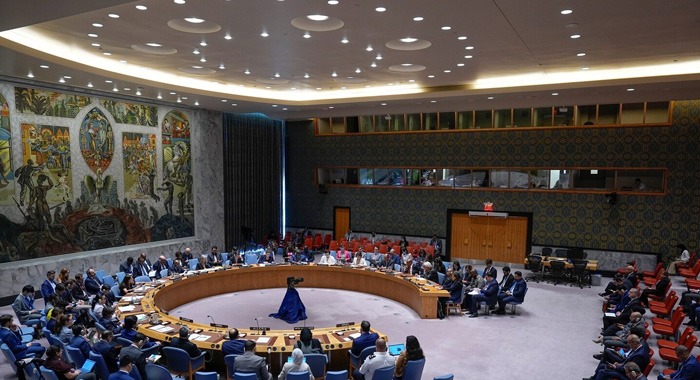Amid escalating global tensions, deepening geopolitical rifts, and growing skepticism surrounding the efficacy of multilateral institutions, Pakistan today assumes the presidency of the United Nations Security Council an emblematic yet strategically critical role entrusted to Islamabad at a time of historic uncertainty. This marks Pakistan’s eighth term on the 15-member body and its first presidency since 2013. Pakistan began its current two-year tenure as a non-permanent member in January 2025, which will continue through the end of 2026, according to a report published by Dawn.
Speaking to media, Pakistan’s Permanent Representative to the United Nations, Ambassador Munir Akram, underscored the gravity of the international landscape in which Pakistan assumes this responsibility.
“Pakistan is presiding over the Security Council at a moment when the world is navigating unprecedented uncertainty, widening conflicts, and acute threats to global peace and stability,” Ambassador Akram said. “The stakes for the international community could not be higher.”
While the Council’s presidency rotates monthly and does not carry executive powers, it plays a crucial role in shaping the Council’s agenda and influencing its tone and priorities.
In an era when the Security Council remains paralyzed over pressing crises such as Gaza and Ukraine, Pakistan’s leadership though brief—comes at a pivotal moment. Against the backdrop of eroding faith in multilateralism, Islamabad’s stewardship will be closely scrutinized for its capacity to inject credibility, balance, and resolve into the Council’s work.
Ambassador Akram emphasized that Pakistan has always championed peaceful conflict resolution, principled diplomacy, and inclusive dialogue. “We bring a consistent and constructive voice to the table one rooted in equity, international law, and a commitment to strengthening the rules-based multilateral order,” he said.
He added that Pakistan’s presidency would focus on enhancing transparency, inclusivity, and operational effectiveness within the Council. “We will work closely with fellow members to ensure timely, coordinated, and principled responses to global challenges in line with the UN Charter and the collective aspirations of the international community.”





